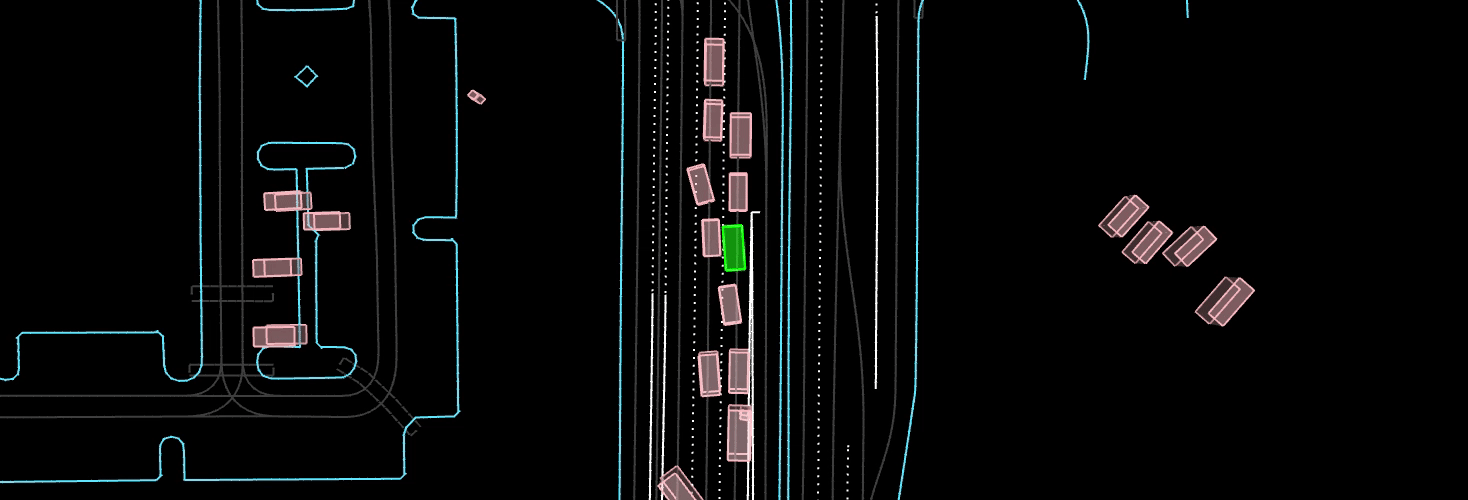TL;DR:
- Waymo introduced Waymax, a cutting-edge simulator for training autonomous vehicle (AV) intelligent agents.
- The simulator is designed to enhance the realism of agent interactions in AV environments.
- Waymax utilizes a unique approach, pairing a dataset of real-world AV observations with agent behavior training.
- It provides a lightweight, functional environment, focusing on agent behavior rather than visual aesthetics.
- Waymo’s commitment to open-access tools, like Waymax, aims to accelerate AV development for researchers.
- The company plans to rerun challenges using Waymax to assess the progress of the AV industry.
- Waymax’s potential to advance reinforcement learning could lead to safer and more adaptive AV systems.
Main AI News:
Autonomous vehicle development hinges on realistic simulations that effectively train self-driving systems to navigate the complex dynamics of real-world scenarios. The ability of these systems to interact seamlessly with various “agents,” such as pedestrians, cyclists, traffic signals, and other vehicles, is paramount to their success. Waymo, a pioneering force in the autonomous vehicle realm, has taken a significant stride in tackling this challenge by introducing a groundbreaking simulator designed to enhance the training of intelligent agents.
Creating and refining intelligent agents stands as a formidable obstacle in the domain of autonomous vehicle research. Waymo has set its sights on addressing this challenge head-on, and in a move that promises to reshape the landscape of AV research, the company recently unveiled a new simulator for the AV research community. This simulator provides a dynamic environment for training intelligent agents, replete with prebuilt sim agents and a wealth of invaluable Waymo perception data.
In contrast to traditional simulators, which often rely on predefined agents whose behaviors are scripted, Waymo’s simulator takes a different approach. Drago Anguelov, Head of Research at Waymo, explains, “In our case, what this simulator is paired with is a large dataset of our vehicles observing how everyone in environments behave. By observing how everyone behaves, how much can we learn about how we should behave? We call this a stronger imitative component, and it’s the key to developing robust, scalable AV systems.”
This innovative simulator, known as Waymax, distinguishes itself by its lightweight nature, designed to facilitate rapid iteration for researchers. In this context, “lightweight” refers to a simulation that prioritizes functionality over elaborate, realistic visuals. Instead of meticulously detailed agents and roads, Waymax presents a simplified representation of a road graph, with agents depicted as bounding boxes imbued with specific attributes. This streamlined approach enables researchers to focus on intricate behavioral interactions among multiple road users rather than on the visual aesthetics of the environment.
Waymax is now publicly accessible on GitHub, though its usage is limited to non-commercial purposes. It forms an integral part of Waymo’s broader mission to provide researchers with tools and resources, including the Waymo Open Dataset, aimed at expediting the development of autonomous vehicles.
While Waymo cannot directly monitor the work produced by researchers utilizing Waymax, the company still stands to benefit significantly from sharing its tools and data. Waymo frequently organizes challenges for researchers to address pertinent AV issues. In a 2022 challenge named “Simulated Agents,” researchers were tasked with training agents to exhibit realistic behavior in relation to Waymo’s test vehicles. During this challenge, Waymo recognized the need for a more robust training environment, leading to a collaboration with Google Research to create Waymax.
According to Anguelov, Waymo intends to reintroduce this challenge using the new simulator in the coming year. These challenges serve as a litmus test for evaluating the progress of the AV industry in critical areas such as multi-agent environments, allowing Waymo to assess the competitiveness of its technology.
Furthermore, Waymo believes that the Waymax simulator could hold the key to advancing reinforcement learning, potentially leading to autonomous vehicle systems displaying emergent behaviors. Reinforcement learning involves an agent learning to make decisions by interacting with its environment and receiving feedback in the form of rewards or penalties for each action taken. Anguelov envisions scenarios where simulated pedestrians receive rewards for avoiding collisions with each other, resulting in emergent behaviors, such as unconventional lane changes or a coordinated agreement among vehicles to drive consistently when recognizing each other as AVs. The ultimate outcome could be a safer landscape for autonomous driving.

Source: Waymo
Conclusion:
Waymo’s Waymax simulator represents a significant leap forward in autonomous vehicle training. By emphasizing realistic agent behavior and providing tools for researchers, Waymo aims to drive innovation in the AV market, ultimately pushing the industry closer to the goal of safe and efficient autonomous driving.

